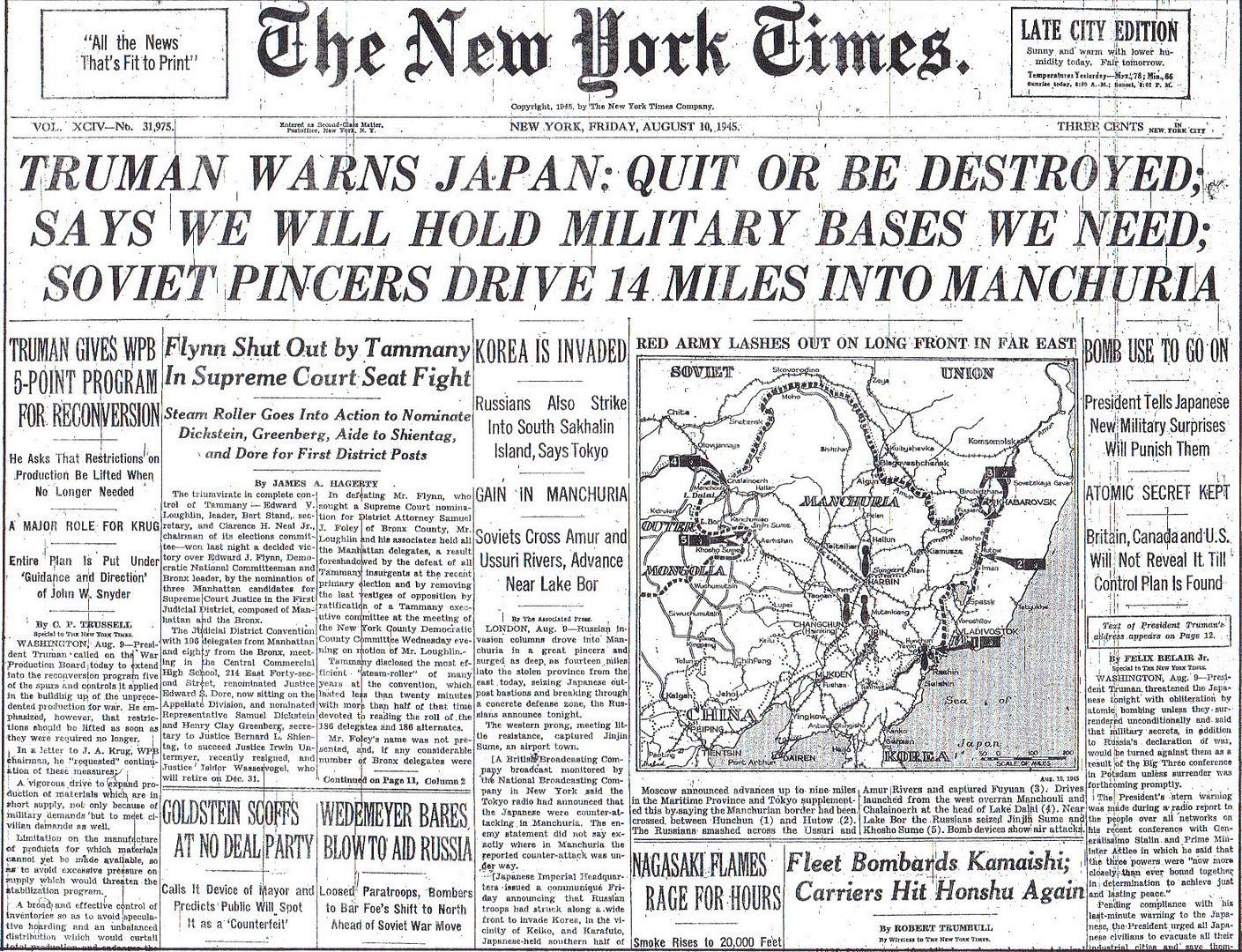
Posted on 08/10/2015 4:22:03 AM PDT by Homer_J_Simpson

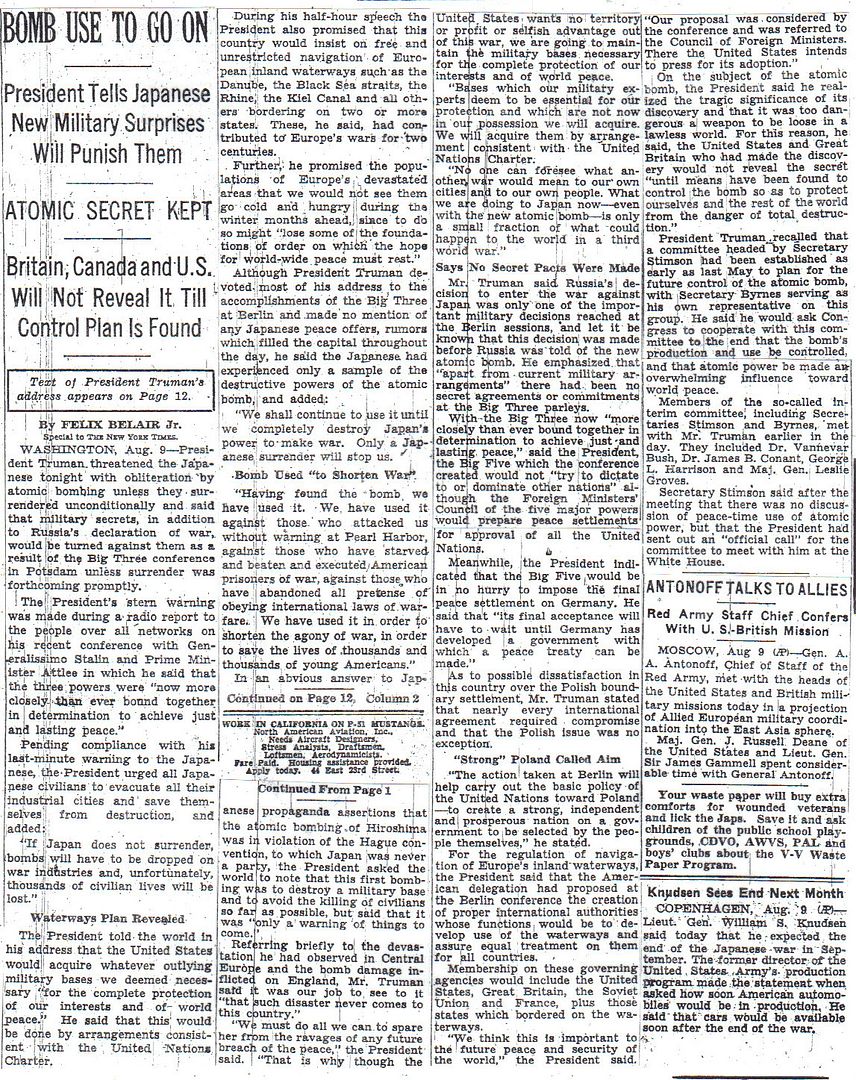
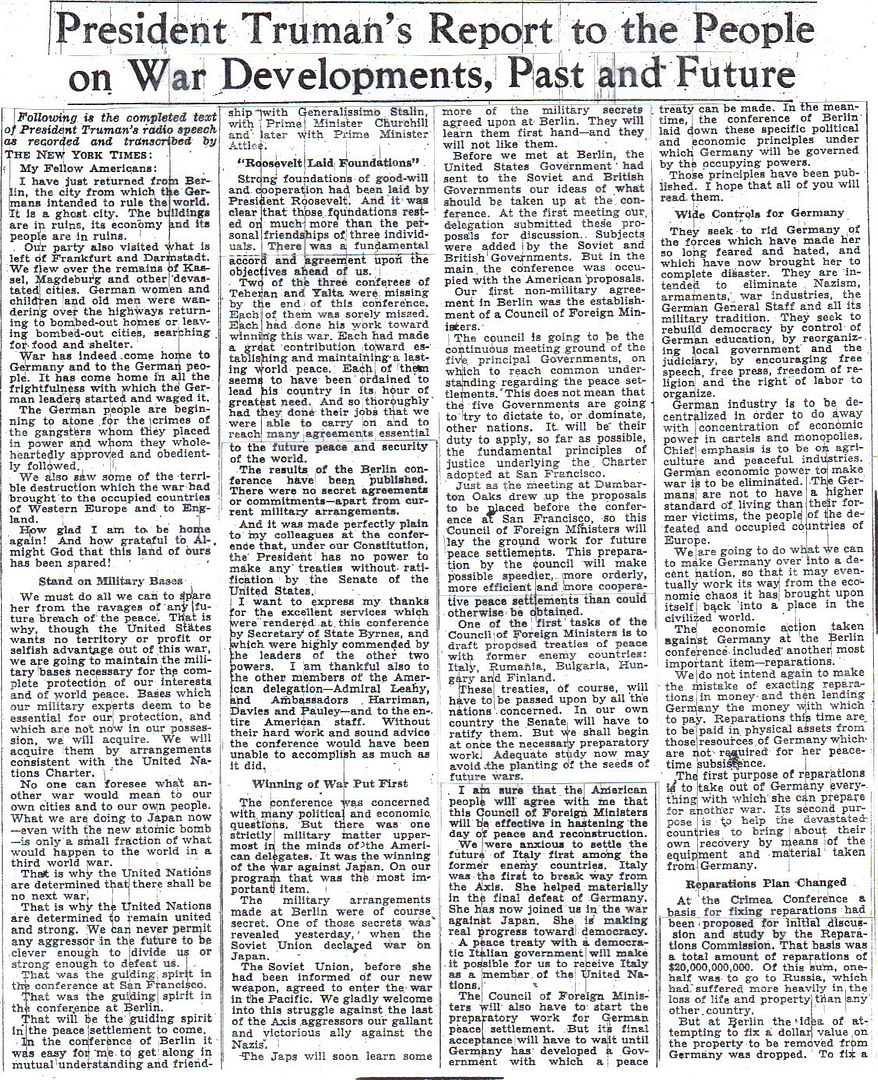
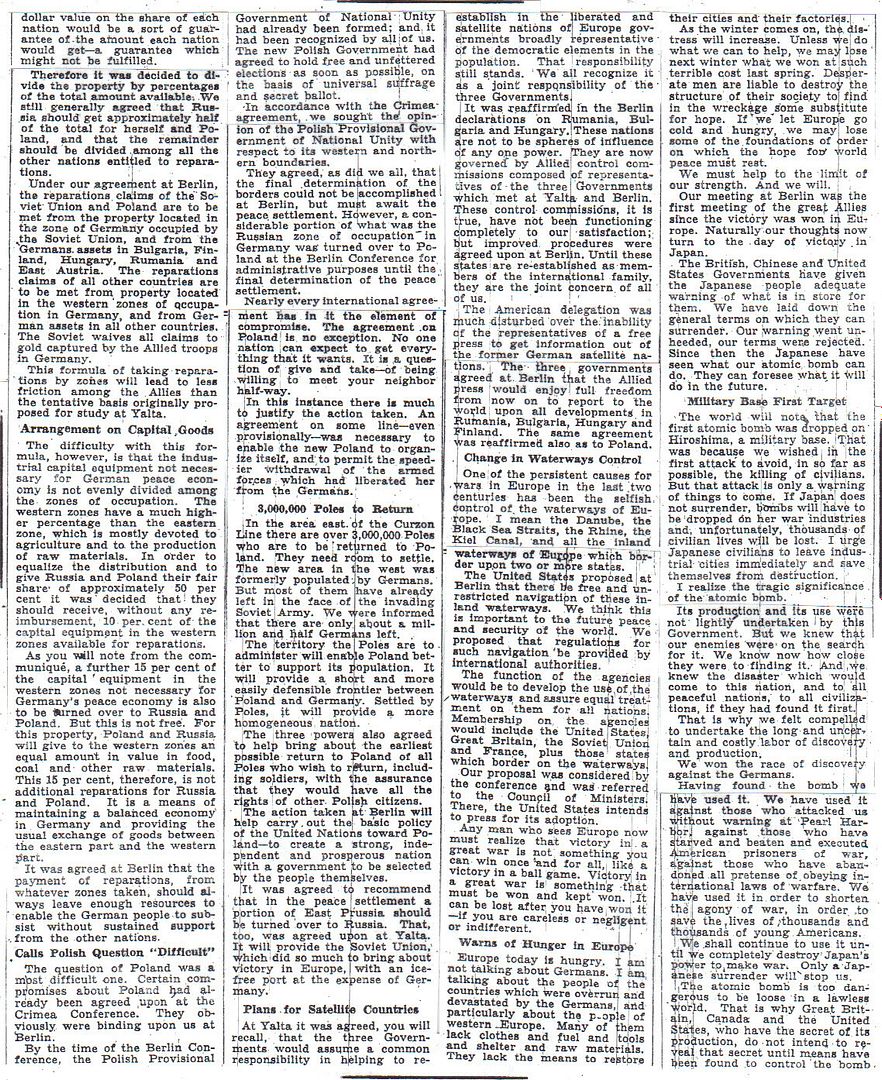
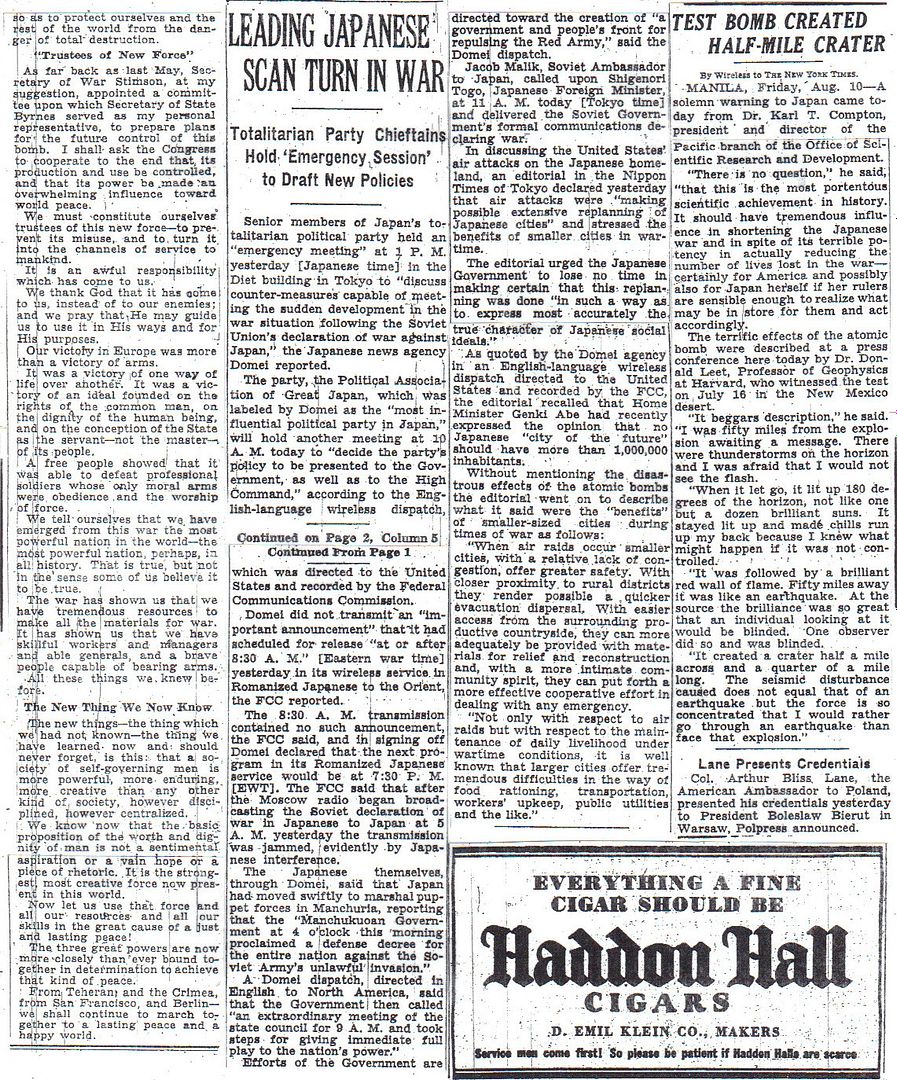
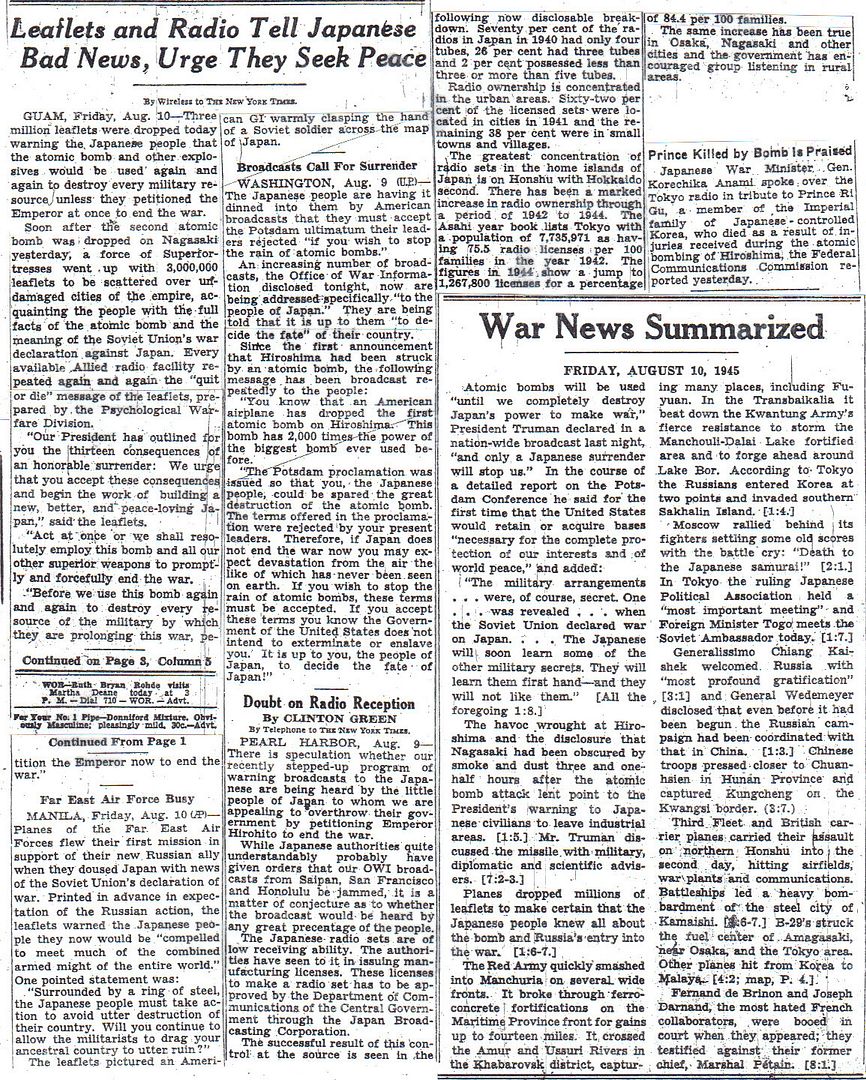
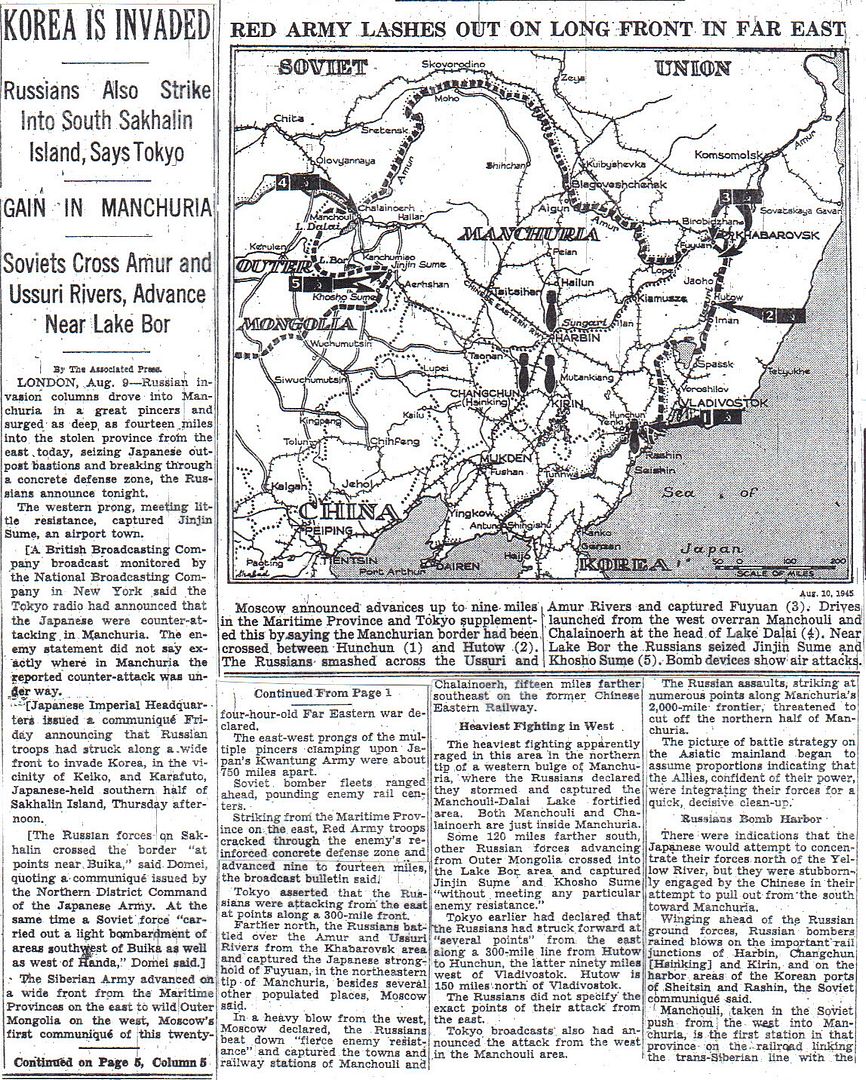
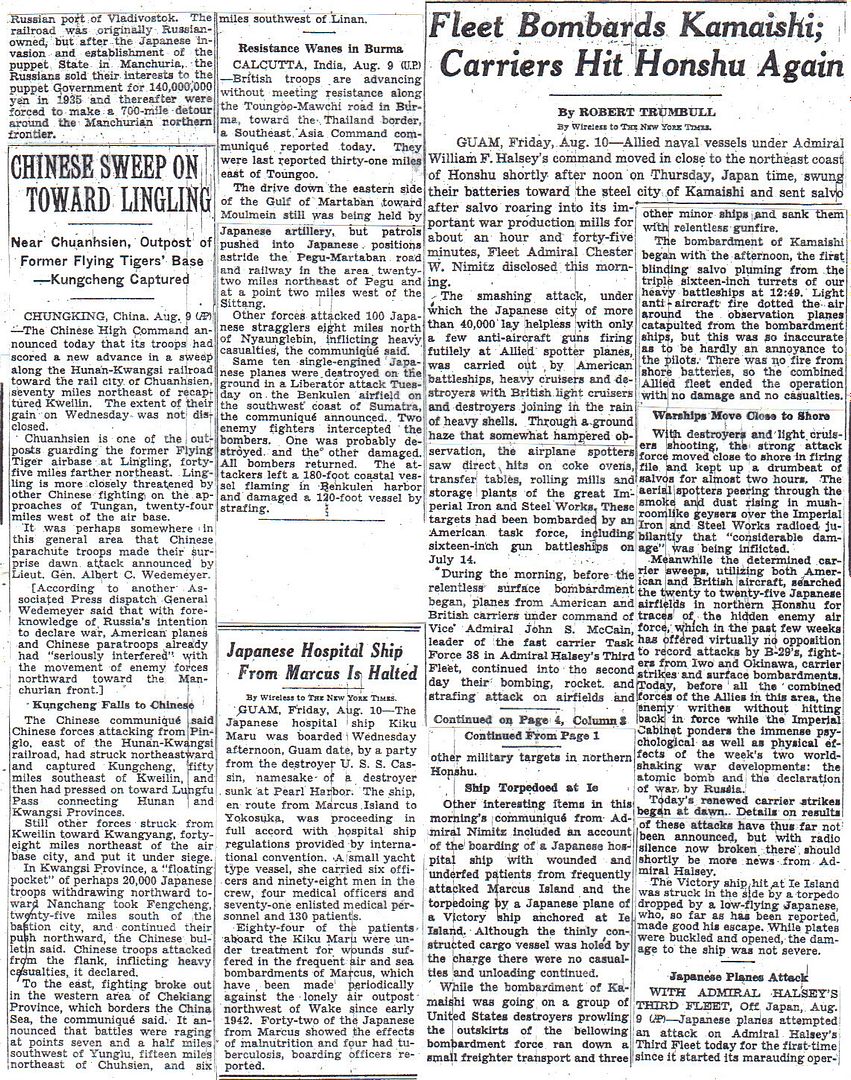
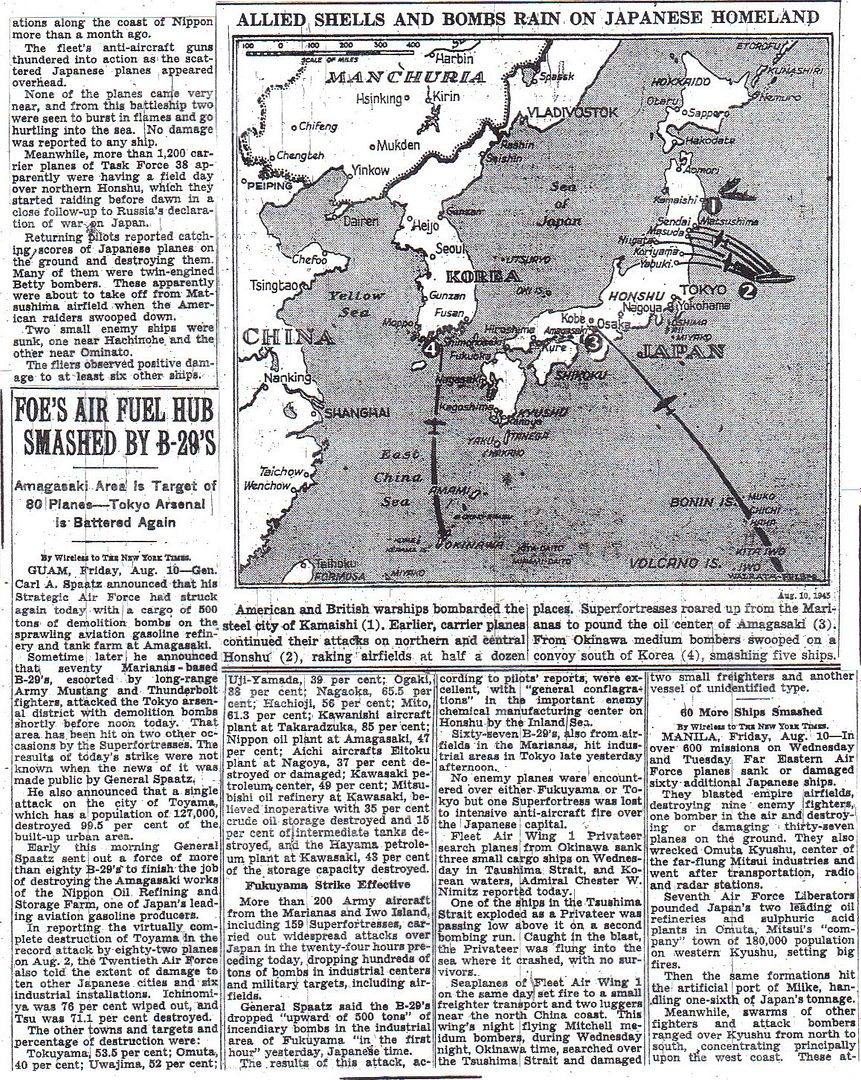
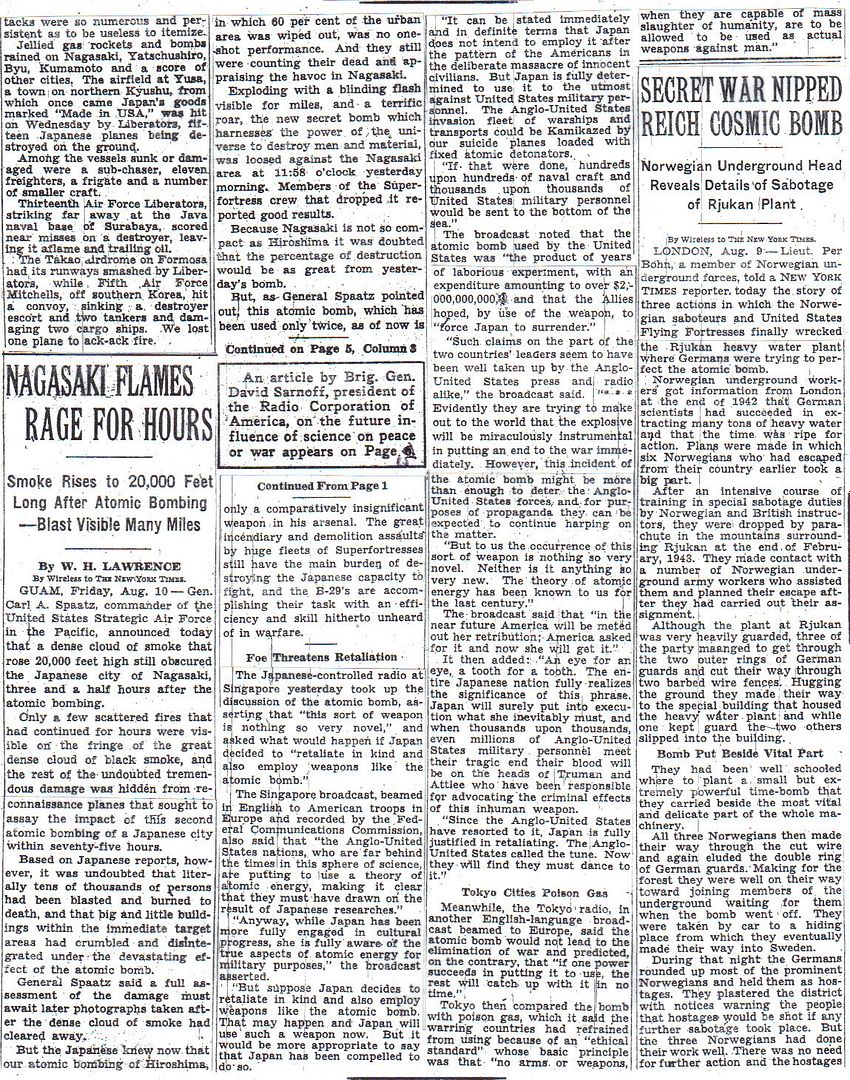
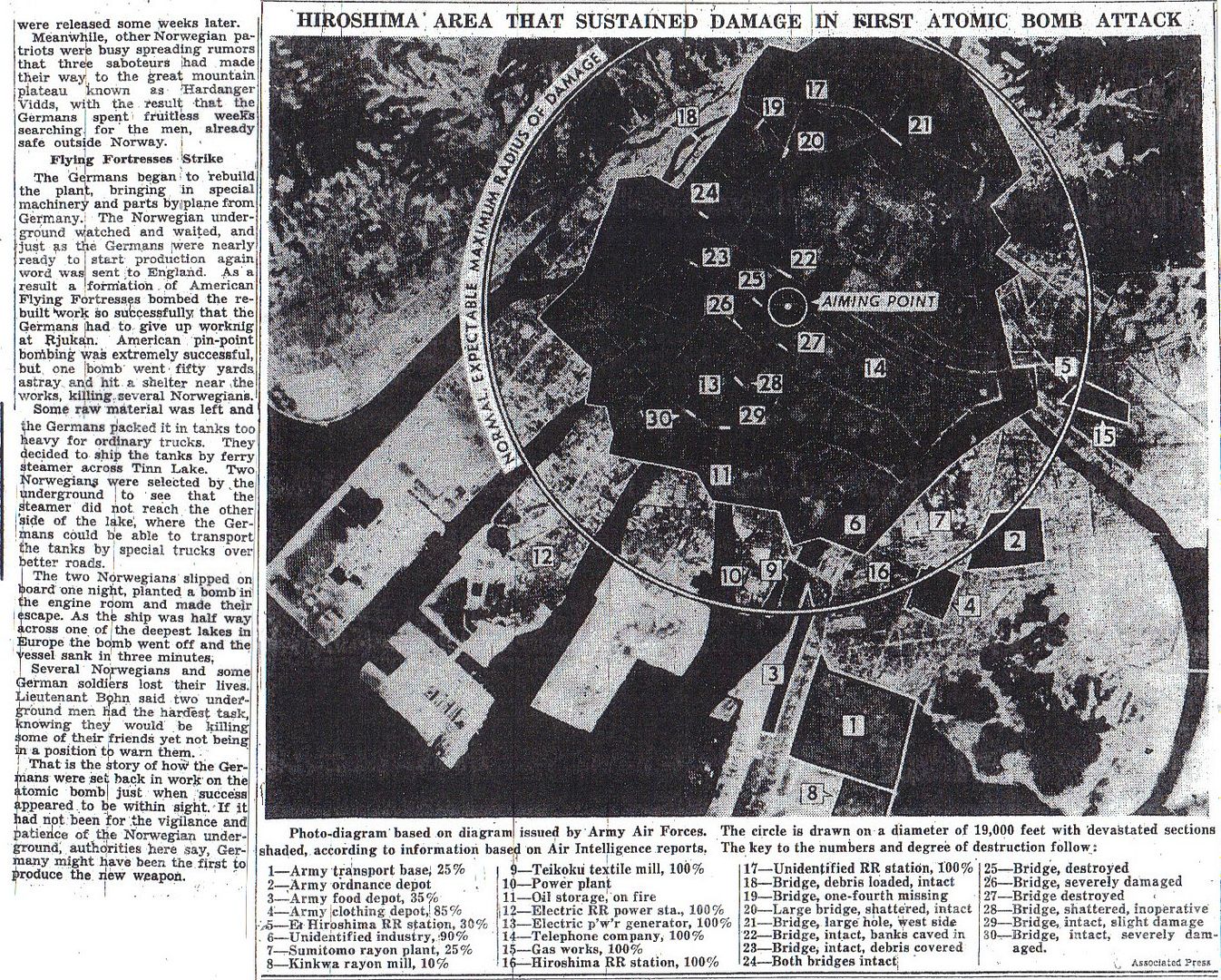
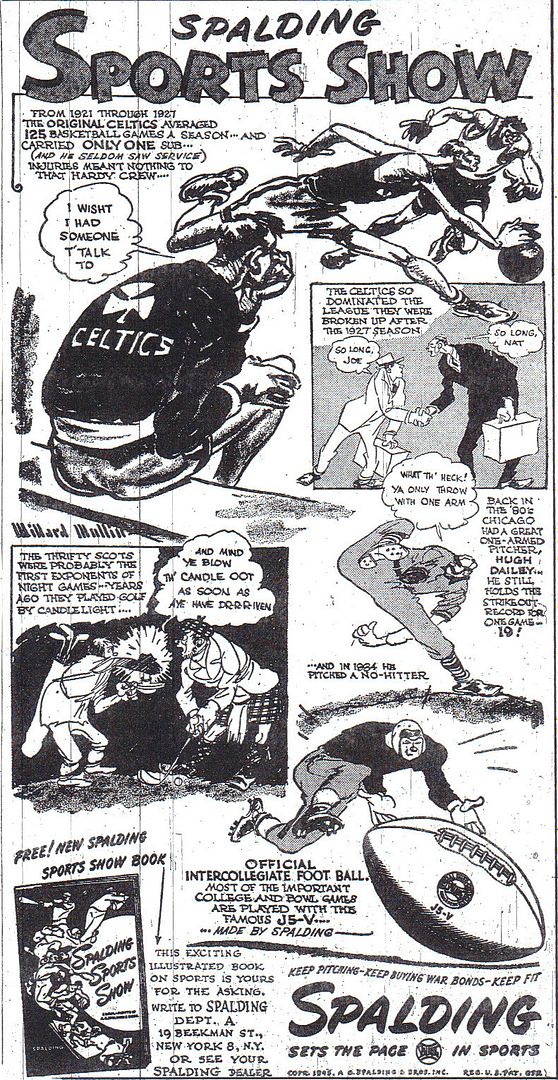
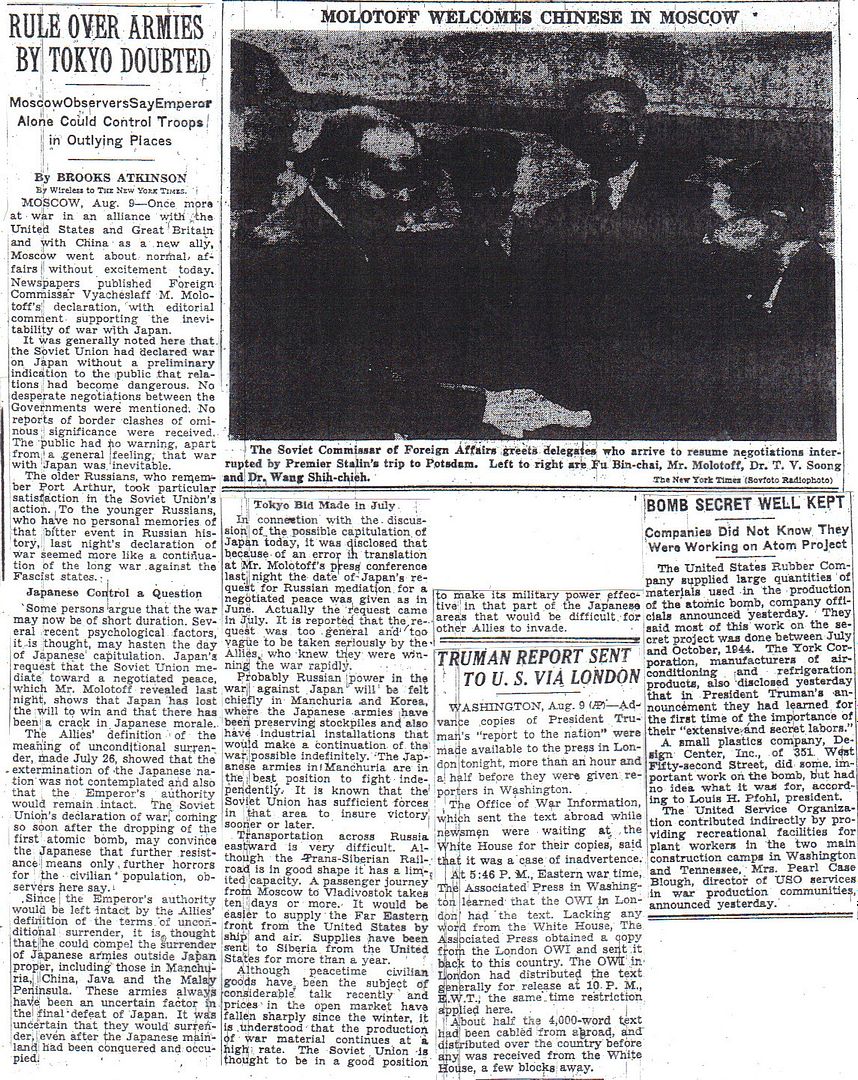
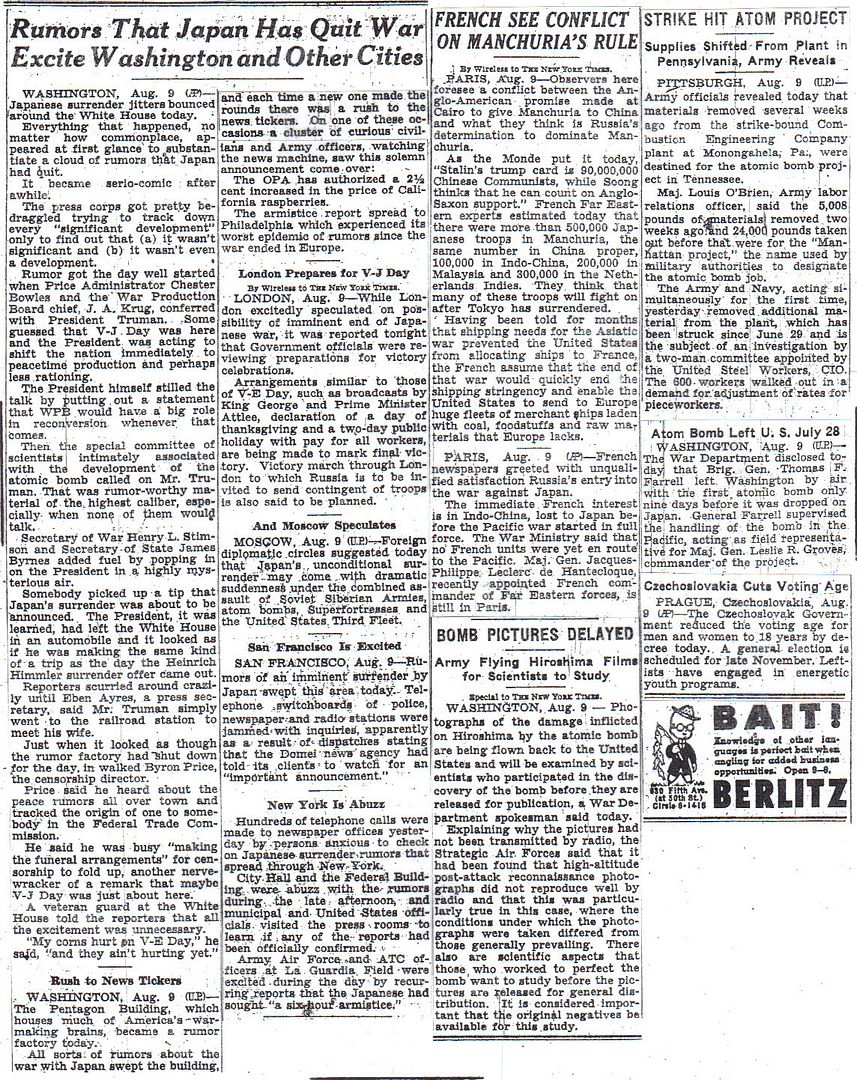
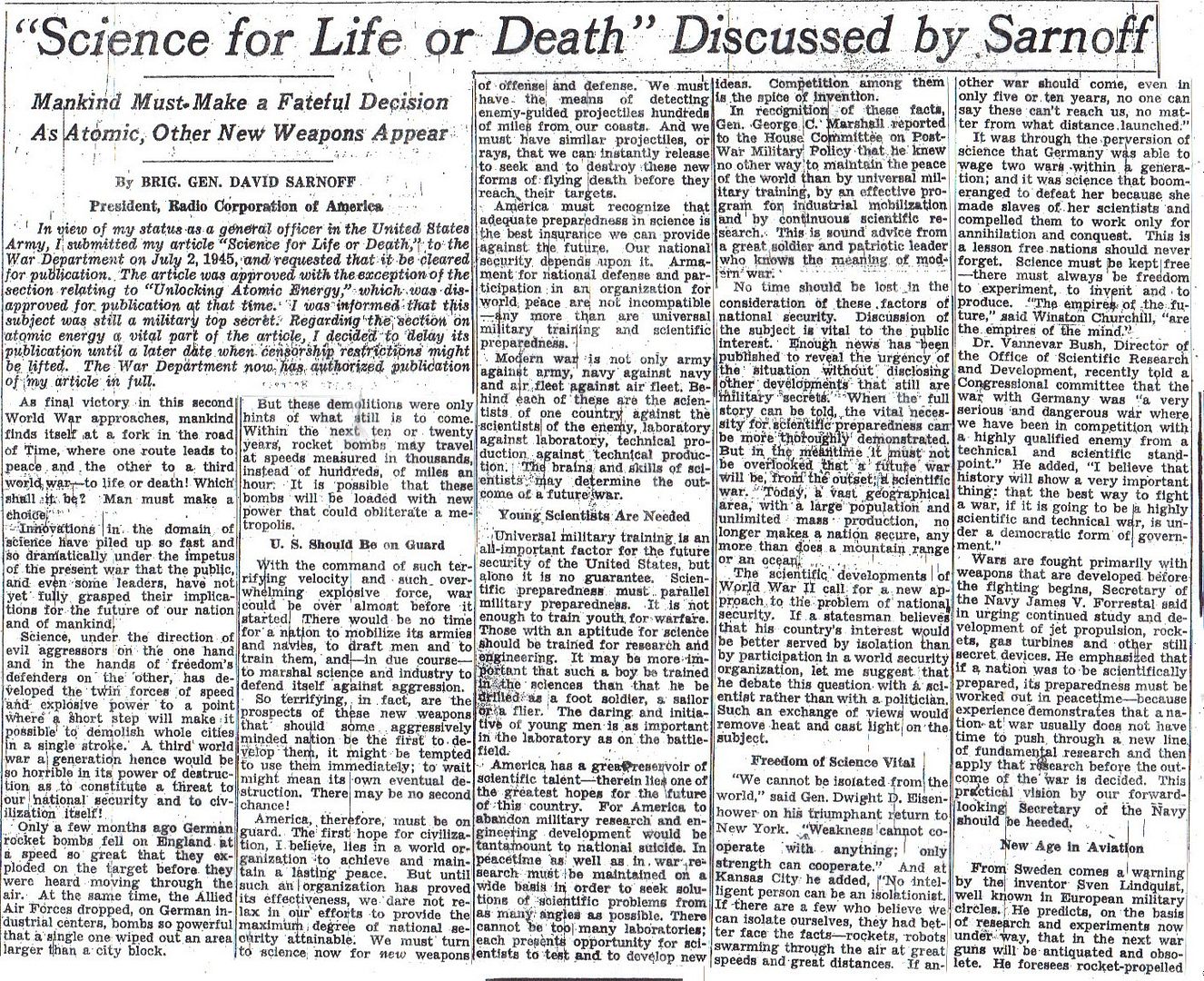
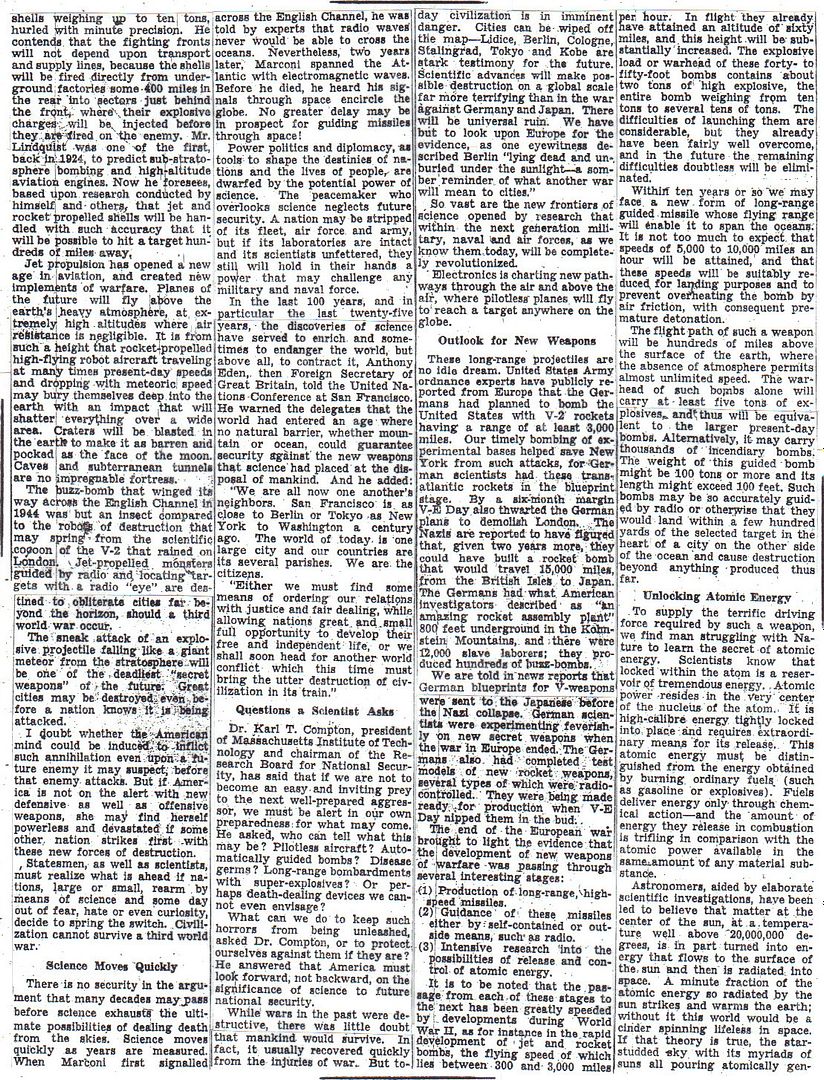
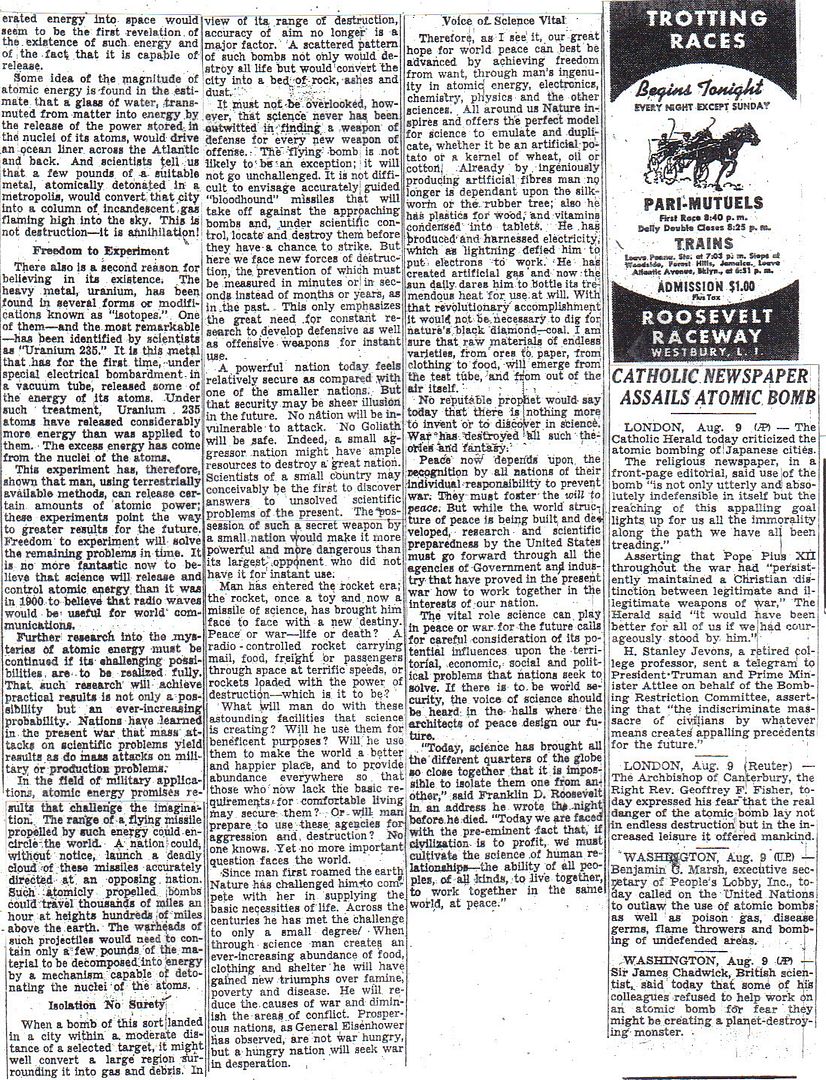
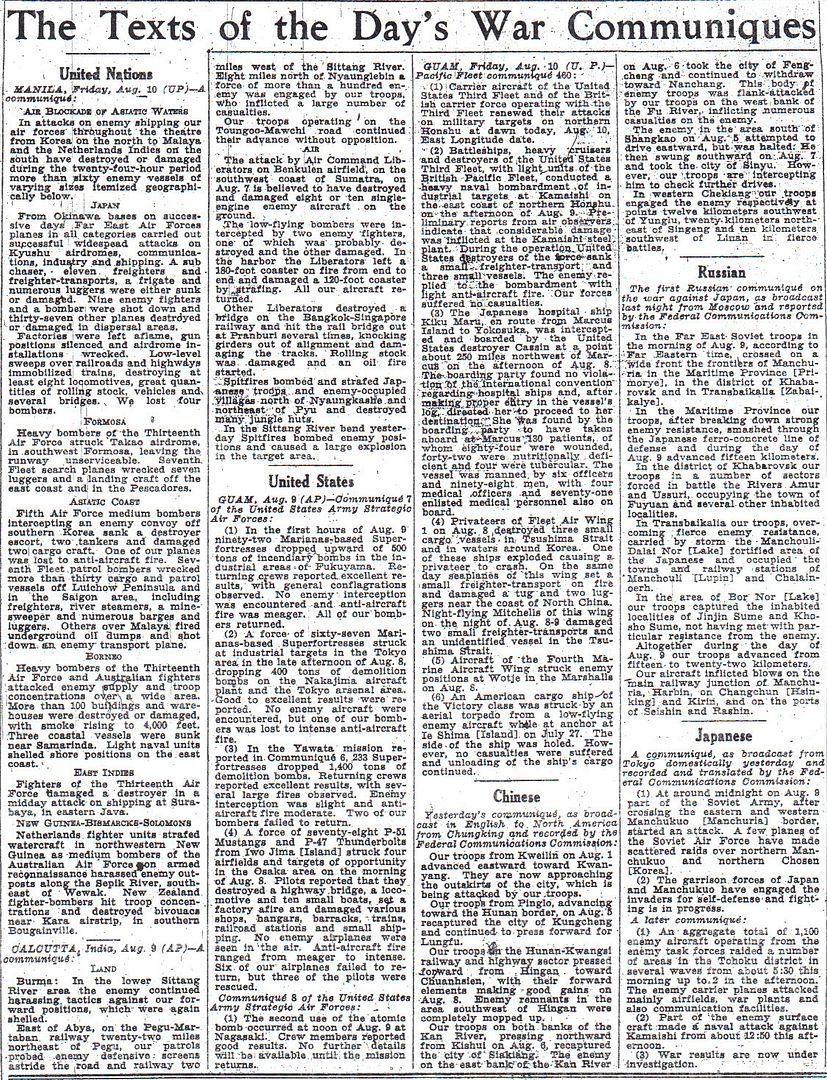
Yes, and death is as light as a feather.
What a brave culture!
Forgot about the Type-97.
A hit to a drive sprocket, tensioner, or a tread pin was probably the only way the Japanese 47mm could disable an IS-2.
I guess page 14 says it all.
everyone pretty much expected Japan to surrender.
Unfortunately Korea was just an afterthought
Of course Japan’s war started long before Pearl Harbor
There were a few. Some were trained in the west. Japan had its own nuke program but not the resources to get it done
Well, now, maybe. There’s a show on Hulu I watch called Manhattan. It’s about the scientists and their wives living in Los Alamos during the development of the Bomb. I’m sure chicks dig it for the stories of the wives, but I like the part about the sheer difficulty the scientists went through in making the bomb. What I meant it was no sure thing for them. They learned through a lot of trial and error.
My point would be, any of the scientists, from Vannaver Bush, to Kirk Compton, J. Robert Oppenheimer, to Ernest Lawrence—all of them—would be surprised as hell if their 1942 selves were able to talk to their post-Trinity 1945 selves.
They probably would have said things like “I never would have thought THAT possible!” to “Why didn’t that work? I was a GREAT idea!”
So, with all respect to those Japanese nuclear scientists like Dr. Ryokicho Sagane, they didn’t have all those trial and error experiences of the Americans.
And that’s why I was very interested in that quote in Truman’s journal. At that moment in time, only 3 days since the word about the atomic bomb got out, all kinds of false claims were being made.
Didn’t Oppenheimer himself say they didn’t know if the Trinity blast would just keep going and destroy the whole universe?
I’ve done my research, primarily from Frank’s “Downfall” and Glantz’ “When Titans Clashed” and I’m going to call it a draw. For the Manchurian Operation, the Soviets assembled three Fronts:
Transbaikal Front under Rodion Malinovsky, 654,000 men with 6th Guard Tank Army, four combined-arms armies and two cavalry-mechanized groups. Malinovksy had been a Front commander since 1943 and led Soviet armies across the lower Dneper and did the conquest of the northern Balkans.
Second Far Eastern Front under Kirill Meretskov with 586,000 men in four combined-arms armies and one mechanized corps. Merestkov had been a commander along the northern sector of the Russo-German Front.
First Far Eastern Front under Maxim Purkayev with 337,000 men in eleven rifle divisions and various independent and tank brigades.
Glantz puts the total Soviet force as 1,600,000 men, and Frank states the armored component was 3,704 tanks and 1,852 self propelled guns. Frank states that the Soviets moved 403,000 men and 2,100 tanks and self-propelled guns to the east.
So from looking at the map of the deployment, with the two Far Eastern Fronts being deployed on the eastern face of the Manchurian bulge, and the Transbaikal Front on the western face, I have concluded the following:
1. The two Far Eastern Fronts conducted the operation with what was already on hand. Given the extra distance and the timetable for the operation, it made sense to not ship most reinforcements to them.
2. On the western face of the Manchurian bulge, the Great Kinghan Mountain Range was considered impassible by the Japanese, and on the other side lay the vast Mongolian desert. The Soviets would have left this area more or less undefended until May 1945.
3. The Soviets created the Transbaikal Front almost entirely from forces shipped from the west. That would have been the shortest route logistically along the Trans Siberian Railroad. Also, the preponderance of commanders in that Front who had recently fought in the Balkans (Malinovsky, Kravchenko, Pliev) leads me to that conclusion. That Front was intended to be highly mobile to get across the marshy passes of the Great Khingan range before the Japanese knew what was afoot.
So for the eastern half of Soviet operations, it was forces on hand. The western half was entirely transferred units.
destroyer of worlds
“a draw” = “kissing your sister”
“Thanks. Very, very well-reasoned and -stated.”
Yes, it is.
However, it does not speak to the theological issue.
This is not a fault. It was not the author’s intent to address that, nor was he obligated to do so.
If you don't count that warning shot that LBJ took at Mississippi to get them in line on his 'Civil Rights' program.
The Rooskies are still holding some of Japan.
http://marshallfoundation.org/library/documents/memorandum-chief-staff-august-10-1945/
Memorandum to Chief of Staff, August 10, 1945
1945
1959-1960
Author: Leslie R. Groves
Date: August 10, 1945
When I handed this memorandum to the Chief of Staff, I recommended orally that I be authorized to delay the shipment of the fissionable material for the third bomb from the United States in order that the Japanese would have an opportunity to surrender. I did not want future anti-American propagandists to accuse us of wanting to inflict unnecessary punishment on the Japanese. A delay until noon of 13 August was approved by General Marshall, who then added his written note at the bottom of my memorandum.
When the deadline came there was still no Japanese surrender. Neither General Marshall nor Secretary Stimson was available. I discussed the problem with the Deputy Chief of Staff, General Handy. Neither of us felt that he could authorize me to further delay the shipment. I then made my decision. I asked General Handy to inform General Marshall that I was exceeding my instructions and in the absence of any word from him would not ship any fissionable material for the third bomb until I could see him.
Some days later General Marshall told me how glad he was that I had taken the action I had.
Memorandum to Chief of Staff, August 10, 1945 pdf - http://marshallfoundation.org/library/wp-content/uploads/sites/16/2014/07/Groves_Leslie_R_Marshall.pdf
I recall reading one time that the agreement was for 90 days after the end of the war in Europe.
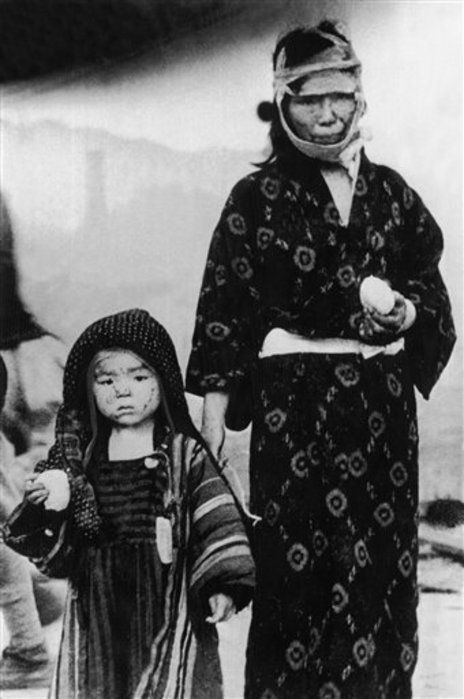
Before noon on August 10, 1945, a mother and her son have received a boiled rice ball from an emergency relief party. One mile southeast of Ground Zero, Nagasaki, 08/10/1945
Really Japan’s surrender can’t be pinned on one issue alone. It was the combination of different events that finally pushed the Emperor to issue the go-seidan overruling the ministers and accepting the Potsdam declaration (well, almost anyway but I’ll get to that).
The Emperor had already made it clear to the Diet previously that he wanted his ministers to work toward ending the war. At that time for Japan, they were limited in what channels to use to negotiate a peace. Russia was the best conduit for that since they were not at war with them at the time and could serve as a mediator in negotiating a peace rather than just accepting “unconditional surrender”.
The ministry would put out a feeler to Molotov on July 13th, to try to open the door to mediation. The request would be ignored by Russia, much to the consternation of Diet until the night of the 8th of August when the answer would be a declaration of war instead of a channel of negotiation.
The sticking point for Japan was the “unconditional” aspect of the demands placed by the Allies. There were several things Japan wanted to negotiate for a peace, but a non-starter was leaving the fate of the Imperial house to the Allies. There was fear among the ministers and the Emperor that accepting “unconditional” surrender would leave the the Emperor vulnerable to war crime charges. Had the conditions of the Potsdam Declaration included a provision that could have left the Imperial house intact, there is every possibility that Japan may have surrendered before the first atomic bomb was even dropped (we will never know for sure of course).
After the destruction of Hiroshima, the conversation in the Diet did change. The Emperor is said to have made the observation that with this kind of weapon in use, it was even more impossible to continue the war. He then suggested that the ministers should not miss any opportunity to end the war at the earliest possible moment provided that it was under a “favorable term”. Though the atomic bomb had not convinced the Japanese to end the war, it had instilled in them, and the Emperor, a sense of urgency to get an acceptable surrender negotiated (”unconditional” still being a sticking point).
On the evening of August the 9th, over 12 hours after the second bomb struck Nagasaki, the Diet met again. An interesting anomoly of this meeting is that the atomic bombing of Nagasaki was not really discussed though it is certain that they knew of this second attack. The only reference even close was made by the Chief of the Army General Staff Yoshijiro Umezu who was totally against surrender and stated that there was no reason to surrender as a result of air raids (which would include atomic raids).
What was discussed extensively was the Soviet declaration of war. The talks were not so much on the operational level as they were the political one. That avenue that they had hoped to open to negotiate a peace had suddenly been closed on them. With the exception of the hard liners who would never accept peace, the rest of the Diet had come to the conclusion that the Potsdam Declaration would have to be accepted.
This still didn’t keep them from trying to negotiate terms. Even on that evening of the 9th, the initial proposal called for four conditions for peace.
1. The terms will not include andy demands on the Imperial House.
2. Japanese military units abroad will be allowed to voluntarily withdraw and demobilize.
3. War criminals and their trials will be handled by the Japanese govenment.
4. There will be no occupation of the Japanese home territory.
By the end of the meeting cooler heads had put forward the fact that if they expected to get any concessions to “unconditional” at all, they should be very limited in what they asked for. The final text approved by the Diet read as follows:
“The Japanese Government is ready to accept the terms ennumerated in the tripartite joint declaration which was issued on the 26th of last month, with the understanding that the said declaration does not comprise any demand which prejudices the prerogatives of His Majesty as a sovereign ruler.”
They opted to only ask for that first and most important condition, protecting the living decendent of Amaratsu on earth.
So the go-seidan (sacred decision) issued by the Emperor was driven just as much by the declaration of war by Russia as it was the atomic bomb, and the fact that they were, at this point, completely cornered and materially exhausted. All of these factors came together to convince the ministers and the Emperor to go ahead and accept the terms for surrender while asking for just the one caveat.
Would the war had ended with just the atomic bombs? The evidence makes it seem unlikely, but it really is a bit speculative. If that had been the only factor, there would not have been that other pressure with the Soviet declaration of war and maybe the bombing of Nagasaki would have sunk in more completely compelling the same result. There is no way to know. We can say certainly that the atomic bomb did create a sense of urgency in Japan to end the war.
Do we give credit to the Soviet invasion? Honestly, the invasion itself really didn’t have any bearing on the decision. The Army staff in Tokyo still stated that they believed they could defend Manchuria from the Soviets despite the initial setbacks. It was delusional for certain, but they believed it emphatically. It was the loss of that perceived channel of negoatiation that had the real impact on the Japanese decision. So it wasn’t the act of war, just the declaration of it that really forced Japan’s hand.
Those two items along with the desparate situation that Japan was already in led to their final decision to “endure the unendurable” and surrender.
I wonder why it wasn't intended for release in the Western Hemisphere....and who was on "List A"?
A lost little boy. An image copied a million times in Japan since March. I hope the Japanese warlords are proud of the life they’ve created for him.
Disclaimer: Opinions posted on Free Republic are those of the individual posters and do not necessarily represent the opinion of Free Republic or its management. All materials posted herein are protected by copyright law and the exemption for fair use of copyrighted works.